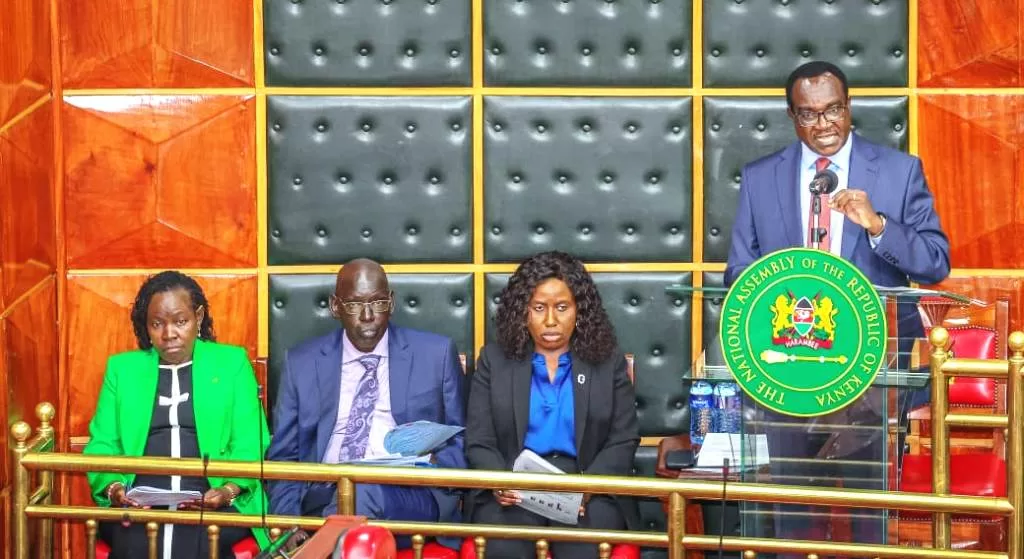PWPER Education Reforms Face Setbacks, Delays in Implementation.
The government is falling behind in its plan to implement the reforms and amend laws proposed by the Presidential Working Party on Education Reforms (PWPER), which was established in June 2023.
Despite the PWPER’s clear timelines for implementing recommendations through an implementation matrix, several proposed changes remain unaddressed, with some facing opposition from stakeholders.
Bills Awaiting Approval
To align with the recommendations and the National Education Policy (Sessional Paper), the Ministry of Education (MoE) developed 11 amendment Bills. However, these Bills have yet to be approved by the Cabinet, preventing them from being tabled in Parliament.
A recent setback in the process was the High Court’s decision to quash the Variable Scholarship and Loan Fund (VSLF) model for higher education, which had been part of the proposed reforms.
The proposed reforms span the entire education sector, from pre-school to tertiary education. The PWPER’s timeline for these reforms ranges from immediate implementation to a period of three years, with legislative changes suggested where necessary.
Join Teachers Updates on Facebook
One of the most significant changes includes the phasing out of the 8-4-4 education system in primary schools. The next phase of the competency-based curriculum (CBC) is scheduled to shift to secondary schools, which are now referred to as senior schools.
Delays in Implementing Key Changes
A key recommendation from the PWPER was that the MoE should, within six months, discontinue the current categorisation of public secondary schools and instead classify them based on the career pathways they offer.
However, this change has not yet been implemented, and secondary schools are still classified as national, extra-county, county, or sub-county schools.
As the pioneer CBC cohort is set to transition to senior school in 2026, the Ministry has not yet provided any guidelines outlining how this transition will be managed.
Another recommendation from the PWPER was that the MoE should develop guidelines for placing learners into various career pathways based on their performance, interests, and competencies within one year.
These pathways include Science, Technology, Engineering, and Mathematics (STEM), social sciences, arts, and sports science. However, the MoE has yet to create these guidelines.
The Kenya Junior Secondary Education Assessment (KJSEA) is scheduled to be administered at the end of Grade 9 to determine placement into senior schools.
While the Kenya National Examinations Council (KNEC) piloted the KJSEA across all counties last year, it has fallen behind schedule in setting up mechanisms for preparing and printing national assessments as recommended by the PWPER.
TSC Restructuring Delayed
The PWPER had recommended the disbanding of the Directorate of Quality Assurance and Standards at the Teachers Service Commission (TSC) within six months, with its functions to be transferred to the MoE.
However, this restructuring has not been carried out, leaving the two departments to continue operating separately within both the TSC and MoE.
Additionally, the proposed transfer of curriculum support officers to the MoE, with a new designation as zonal quality assurance and standards officers, has yet to occur.
The TSC had also been tasked with harmonising teacher management guidelines with the MoE, covering deployment, promotion, and welfare. However, teacher promotions and deployments remain under the sole responsibility of the TSC.
The MoE has also delayed restructuring the School Equipment Production Unit into the School Learning and Instructional Materials Centre (SLIMC).
This new unit was intended to oversee the procurement and distribution of textbooks and learning resources within a year, but this function remains with the Kenya Institute of Curriculum Development (KICD).
Consequently, Grade 9 textbooks are still being distributed ahead of schools reopening next week.
Funding Challenges Persist
While schools continue to face challenges due to inadequate funding, the PWPER had recommended that the government adopt a minimum essential funding package for basic education institutions, particularly those with low enrolment, within two years.
However, no significant progress has been made on this front.
Read Also: TSC Principal Transfers Hit Kisii County Secondary Schools
The Working Party, chaired by Prof. Raphael Munavu, examined the challenges facing Kenya’s education sector, focusing on areas such as access, relevance, equity, and quality, as well as governance, financing, and the implementation of the Competency-Based Education system.
Despite the clear proposals, the pace of reform has been hindered by delays and resistance to some of the recommended changes.
PWPER Education Reforms Face Setbacks, Delays in Implementation.
Follow Teachers Updates on Facebook, LinkedIn, X (Twitter), WhatsApp, Telegram, and Instagram. Get in touch with our editors at [email protected].


Discussion about this post